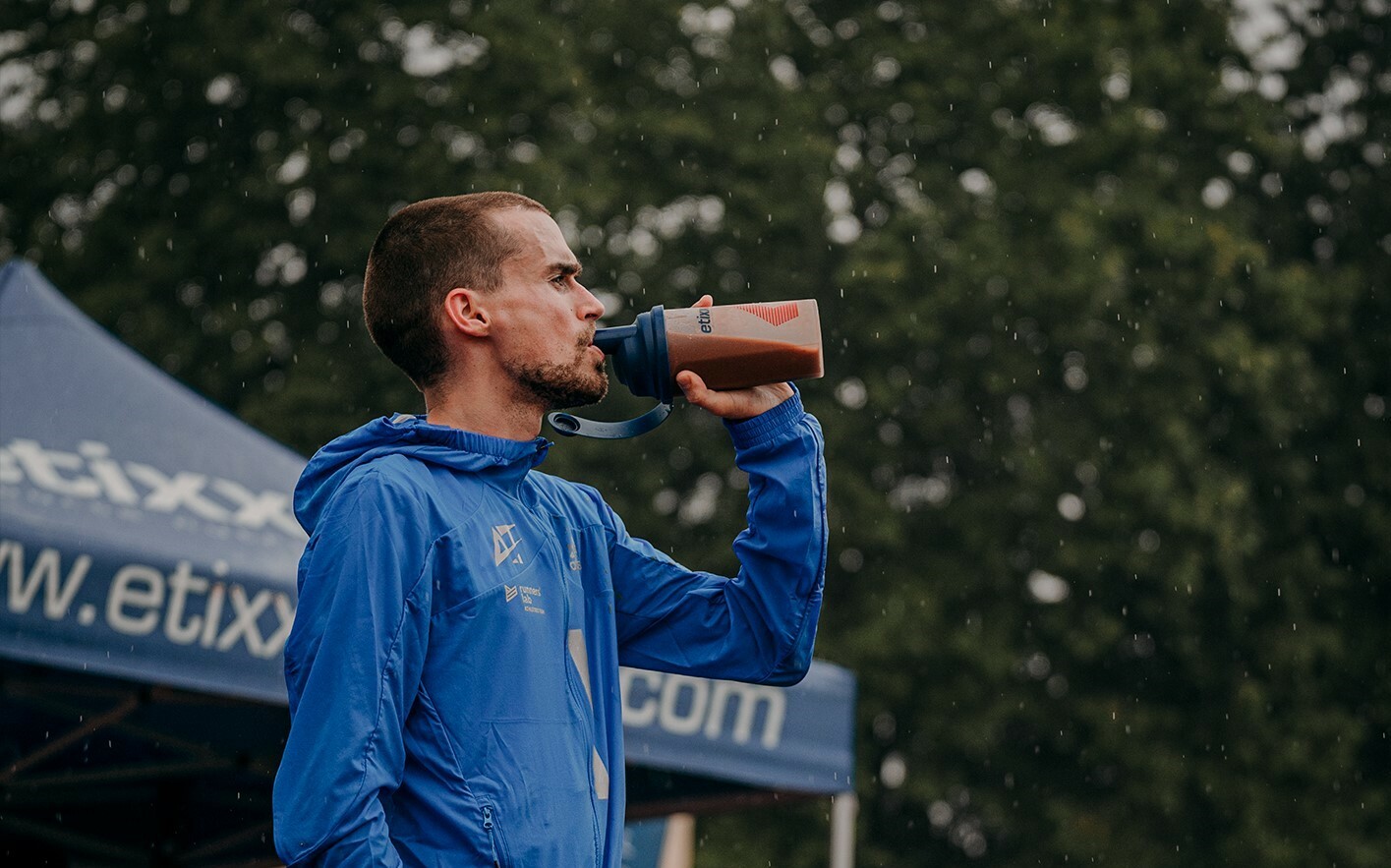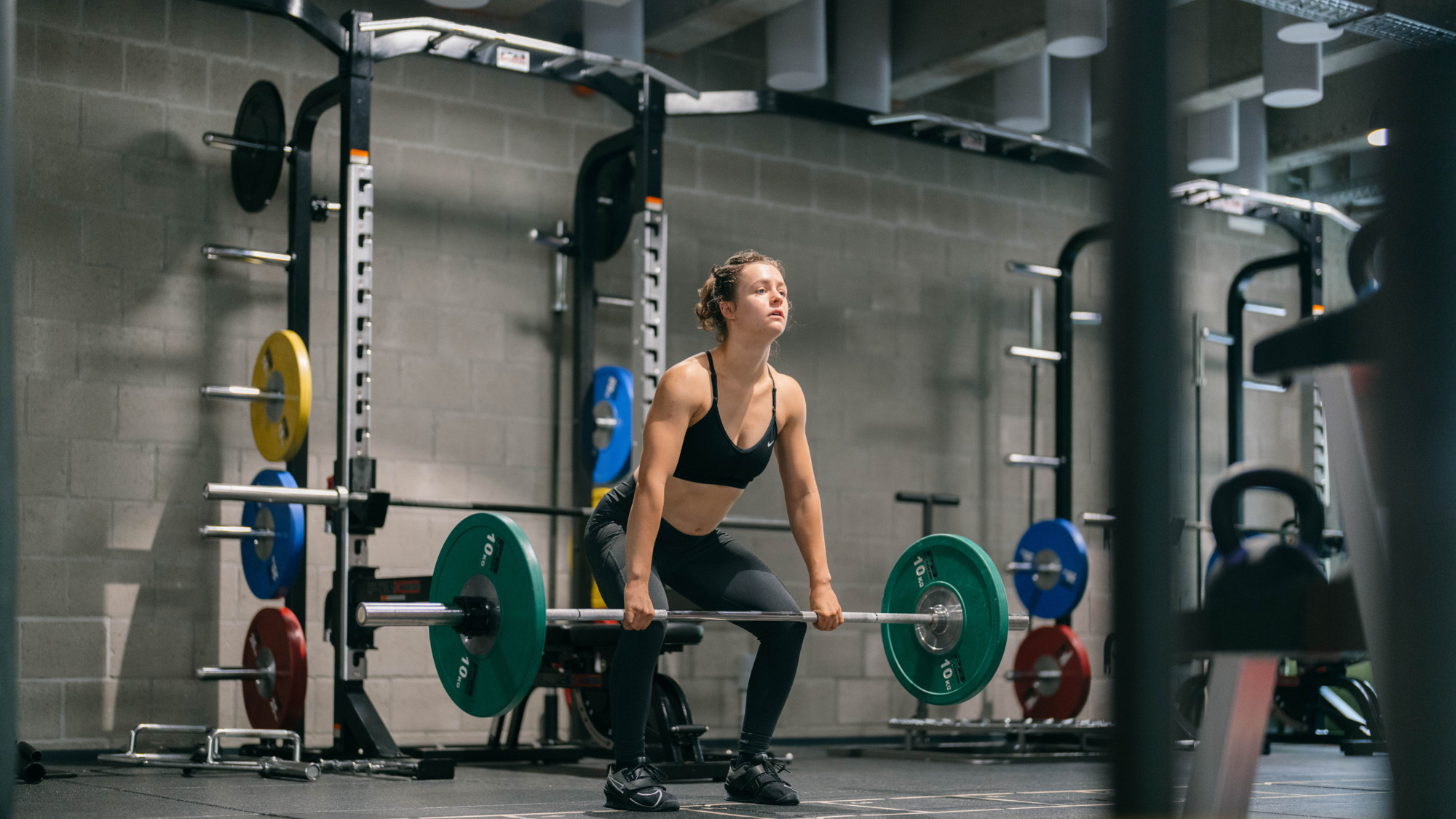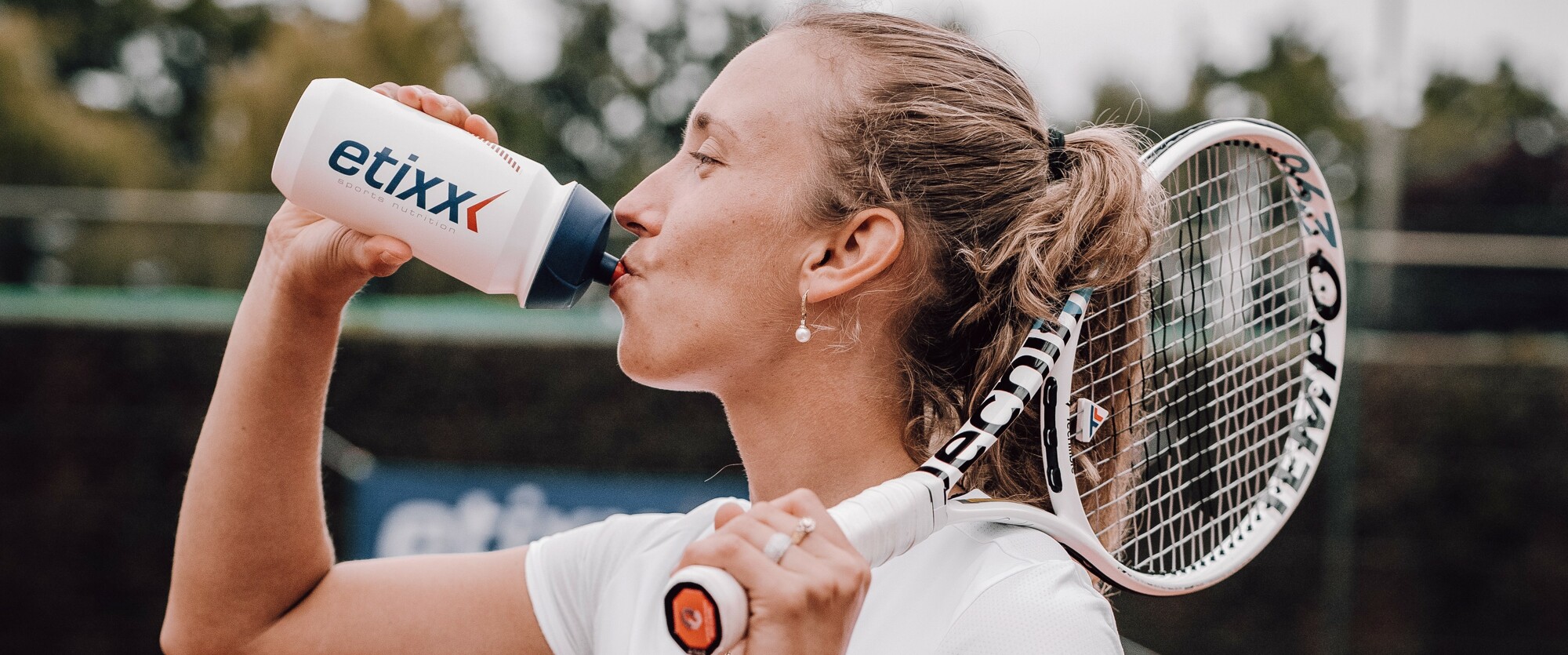5 tips for optimal recovery
Wednesday 19 October 2022

Your training schedule will undoubtedly include some tough endurance training during the coming winter months. Paying enough attention to proper recovery after each workout is crucial to make progress and avoid injuries. In the blog below, we reveal 5 tips to optimise your recovery.
1. Don't forget protein
Taking in the right nutrients-particularly carbohydrates and proteins after exercise-is crucial. If you know that our muscles are made up of 22% protein, ingesting protein is essential for proper recovery. This ensures not only the repair of damaged muscle tissue but also its growth.
Several scientific studies show the importance of protein intake after exercise in muscle recovery. The study below is a good example. The graph clearly shows that subjects who ingested 20 grams of whey protein after a strength training session (blue bar) showed significantly higher muscle protein synthesis. Muscle protein synthesis is the process by which muscle protein and thus muscle mass is built. Subjects who had not ingested whey protein after the same type of exercise (grey bar) showed lower muscle protein synthesis.

If we zoom in on protein intake after exercise, we should keep in mind 3 important guidelines.
- Type of protein
There are several types of protein an athlete can choose from after exercise. In recovery drinks, soy, casein and whey protein are the 3 most common sources of protein. Scientific studies have shown that a whey protein has the greatest muscle-building effect after exercise compared to soy and casein and is therefore preferred. Whey protein owes this higher muscle-building effect to its high concentration of essential amino acids, and leucine in particular. Leucine is the most important non-essential amino acid and activator for muscle protein synthesis. In addition, whey protein is the fastest digested and absorbed into muscles.
- Timing of protein intake
In the first hours after exercise, muscles are most sensitive to protein uptake and muscle protein synthesis is highest. So it goes without saying that the minutes/hours shortly after exercise are the most important and where we can make the most gains for optimising muscle recovery and muscle building. For this reason, a protein intake is recommended within 30 minutes of exercise. Scientific studies show that even in the hours after exercise up to even 48h afterwards, muscle protein synthesis is still higher than before exercise. Therefore, it is not only important for athletes to consume proteins immediately after exercise, but also spread over the day/days afterwards.
- Amount of protein
The duration and especially the type of exercise are two important factors that determine the need for protein after exercise. For efforts at low or moderate intensity, an intake of up to 20 grams of protein is sufficient for optimal recovery. The intake of protein can be increased to a maximum of 40 grams after intensive or prolonged efforts (>2h) or for efforts where large muscle groups are activated.
2. Replenish your hydration levels
Most of our body consists of fluid and during exercise, it is important to keep that fluid balance balanced. Definitely try to avoid a fluid loss of more than 2%. After all, after exercise, the body remains active for a while to recover & normalise its core temperature, which can cause some additional fluid loss.
Our body has a good cooling system via body pores that can evaporate. But that cooling system can only work optimally when fluid intake is properly respected. Immediately after exercise, aggressive fluid intake is necessary when performing again a few hours later. It is then ideal to compensate for 125-150% of the weight loss within the 4-6 hours after exercise. Drinking water is certainly already good but it is not the best drink to quickly restore fluid balance. Quite a few electrolytes (salts) may also have been lost through sweating and need to be replenished. If not, the fluid quickly disappears back through the bladder!
Drinks with extra electrolytes such as an ORS thirst quencher or isotonic sports drink can be a good choice when sweat loss is quite high or the time to rehydrate is rather short. In addition, recovery drinks also turn out to be excellent sports drinks that can already partially restore fluid balance in addition to muscle recovery.
3. Avoid alcohol in the first few hours
In many sports, there is a habit of consuming alcohol after training or competition, sometimes in large quantities. Know that alcohol intake after exercise can negatively affect the recovery process in 4 areas:
- Alcohol interferes with protein absorption. As mentioned in the first tip, proteins are our body's most important building block for optimal recovery. Studies show that alcohol consumption after exercise reduces muscle protein synthesis, even if you take enough protein along with alcohol. Suppressing the anabolic response in the muscle obviously has a major impact not only on recovery and but also on muscle building after exercise.
- Replenishing the carbohydrate reserves in the muscles again is very important for proper recovery, especially after intense or prolonged efforts or when efforts follow each other rapidly. Alcohol intake after exercise has been shown to affect the rate of carbohydrate reabsorption in muscles. The reason for this is mainly due to the fact that athletes who consume alcohol after exercise do not absorb proper amounts of carbohydrates as recommended for optimal recovery.
- Alcohol consumption after exercise may also be associated with reduced sleep quality. Given the importance of good sleep in recovery, this logically has major implications for proper recovery after exercise.
- Furthermore, an intake of alcohol after exercise can cause negative effects on cognitive function the morning after, which can trigger an increased risk of injury if efforts follow each other in quick succession.
4. Take care of your muscles
Our muscles are under extreme pressure during exercise. We always expect the best from ourselves and our muscles bear the brunt of this as they are responsible for performing movements. In the first place, it is important to give the muscles enough time to recover after an effort because during an effort, small tears develop in the muscle. If you return to training with still half-capped muscles, the damage will accumulate. As a result, the muscles will not increase in volume and muscle injuries are encouraged.
But how long should you rest to avoid this? This depends on several factors, for example, duration of exercise, type of exercise, phase of periodisation, level of training and age are some parameters to consider. The optimal recovery time for our muscles varies between 24h and even 72h for heavy exertion. By alternating the load on different muscle groups, efforts can be scheduled in shorter intervals. Listening carefully to your own body is the best measure here.
Besides respecting sufficient rest, we can give our muscles extra support with some recovery methods to recover faster. For example, a good cool-down with the integration of a stretch moment at the end is an important part of the training. During a cool-down, you move at a lower intensity and this allows your muscles and heart to reduce some of the lactic acid in the body. This not only has benefits towards recovery but will also minimise muscle soreness.
Furthermore, massages and ice baths are 2 more good recovery methods to help muscles recover faster and be ready for the next exercise.
5. Get enough sleep and pay attention to your sleep quality
Sleep is an important part of the recovery process for athletes. Our sleep hormone melatonin affects the day and night rhythm. The level of melatonin in the blood varies throughout the day and night and is the hormone that causes you to start feeling sleepy in the evening. In addition, melatonin also plays a very important role in all kinds of repair processes, aiming to make our body recover. For instance, this hormone is responsible for the repair of all body tissues and helps repair stored damage and helps heal bone, muscle and cartilage injuries.
12 hours of day and 12 hours of night is the biorhythm we are genetically programmed for. So best we are 12 hours active followed by 12 hours at rest. However, this does not mean that we should always aim for a night of 12 hours of sleep. Generally, a night of 7-9 hours is recommended for athletes.
So not only the number of hours of sleep are important but also the hours before bedtime. The main issue is how one spends the non-sleeping 12 night hours. Especially in these hours, many athletes can still make huge gains to optimise their recovery. Because when our biorhythms are disrupted, less energy goes to the muscles and melatonin production is inhibited. The absence of light or blue light from iPad, TV, PC, smartphone is the main trigger for our body to produce melatonin. For optimal recovery during the 12 night hours, it is therefore important to avoid blue light as much as possible during that period of the day. Food intake and being active (work, exercise, etc.) also inhibit melatonin production and disrupt our biorhythm. If you still want to eat something during the 12 night hours, choose protein-rich foods. Because just like coffee (caffeine) and energy drinks, foods rich in fats and carbohydrates make your body more alert, which will reduce sleep quality.
Click HERE for more information about the Etixx recovery drinks
Sign up for our newsletter and receive a 15% discount in your mailbox
Search



